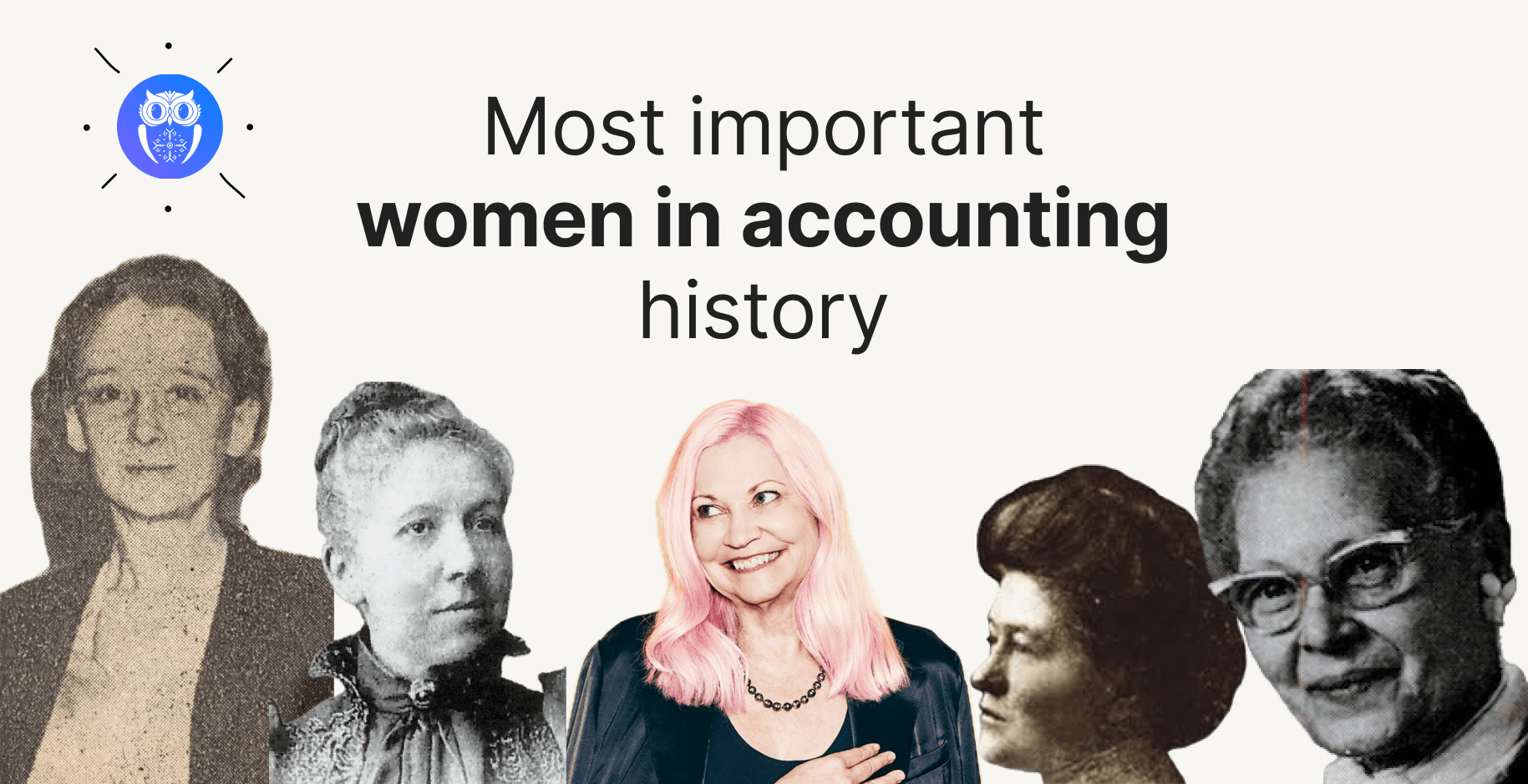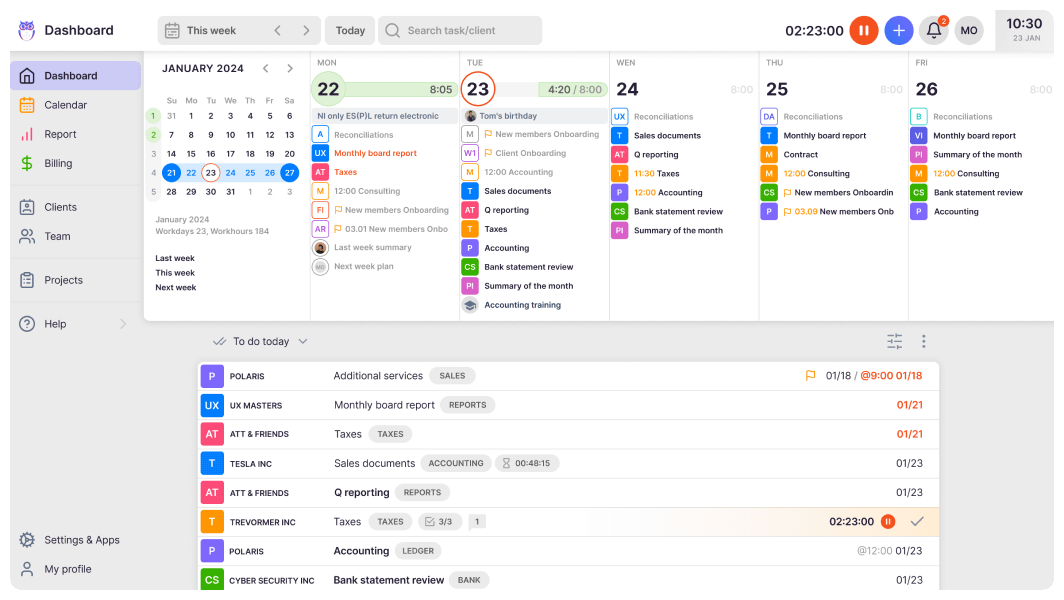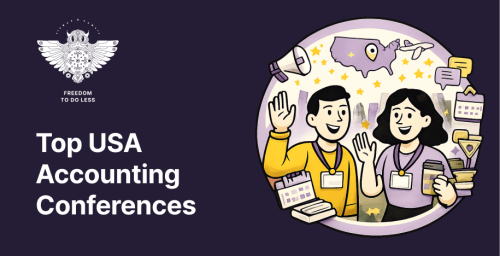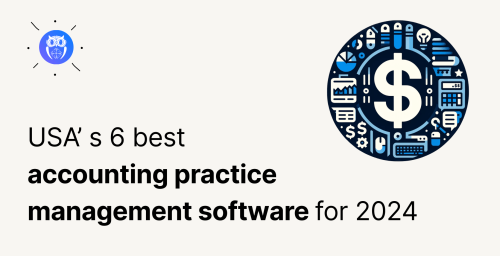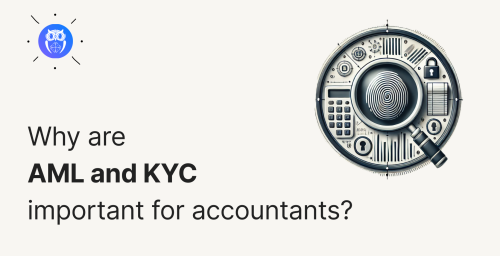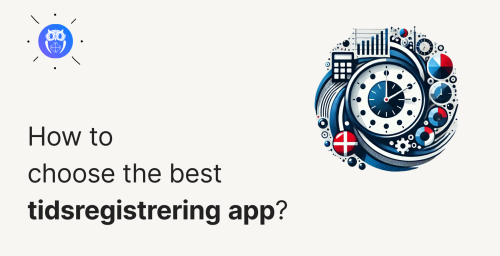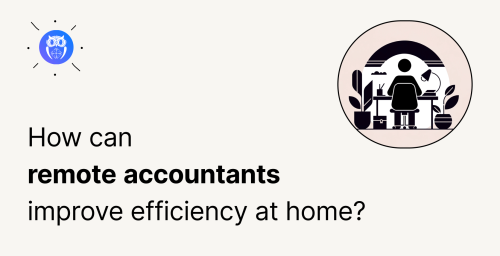Historically, the accounting profession has been dominated by men. However, the revolutionary industrial period brought the business closer to women.
In the 19th century, the Western world gained its first woman accountant, and after that, women made significant contributions that transformed the field over the years. These women are inspiring figures for accounting students and professionals, and their legacies continue to impact the industry today.
Let’s talk about five of the most influential women in accounting history. I’ll tell you about their achievements and lasting impact on the accounting profession and indurstry.
The 5 influential women in accounting history who we’re talking about
- Mary Harris Smith
- Christine Ross
- Mary T. Washingon
- Ethel Watts
- Therese Tucker
Mary Harris Smith: The world’s first woman chartered accountant and female accounting firm owner

Mary Harris Smith can be considered the world’s first female accountant and accounting firm owner. She started her bookkeeping studies in 1860, ran by the Society for Promoting the Employment of Women.
Even though Harris had already worked for a firm and set up her own accounting firm, she was denied admission as a fellow of the Institute of Chartered Accountants in England and Wales (ICAEW) in 1891 because she was a woman.
Nearly 30 years later, in 1919, following the passing of the Representation of the People Act 1918 and the Sex Disqualification (Removal) Act, Harris Smith applied again to the Society of Accountants and Auditors, which had changed its rules. She was not eligible to be admitted because she had not passed the organisation’s examinations, but she was made an honorary member on 12 November 1919.
In May 1920, when Harris Smith was 75 years old, she was finally admitted to the Institute of Chartered Accountants in England and Wales, became a fellow of the Institute, and became the first woman chartered accountant.
Fun fact: Mary Smith Harris described herself as a “lady accountant” in women’s periodicals.
Christine Ross: The first woman CPA (Certified Public Accountant)

Christine Ross is a name that every accounting student has heard of. She had a strong aptitude for mathematics and business, leading her to pursue a career in accounting. Accounting was beginning to formalize with the introduction of certification exams.
In 1896, New York State passed the first law in the United States establishing the title of Certified Public Accountant and requiring candidates to pass an examination to earn this title. The law also stipulated that candidates had to meet specific experience requirements.
Even though Christine was among the first to get the title, her certification was delayed due to societal prejudices and the reluctance to grant professional status to women. However, in 1899, Ross became the first woman in the United States to earn the Certified Public Accountant (CPA) title.
Ross’s achievement was not just a personal victory but a groundbreaking moment for women. After becoming a CPA, she established a successful career in New York City, serving a clientele that included wealthy women and business leaders. Christine Ross’s practice thrived in an era when the concept of women working, let alone as professionals, was still met with resistance.
Her legacy is a reminder that persistence and excellence can break even the most stubborn barriers.
Fun Fact: Ross was initially delayed in receiving her CPA certificate because the New York State Board of Regents debated whether a woman should hold such a title.
Mary T. Washington Wylie: World’s first African American female CPA

Mary T. Washington Wylie is a trailblazer whose name holds a special place in accounting history. In 1941, Mary graduated with a Bachelor of Science in Business from Northwestern University with a keen interest in numbers and a solid determination to succeed. During her studies, she developed a strong foundation in accounting, a field that was, at the time, largely inaccessible to African Americans, particularly women.
After graduating, Mary T. Washington Wylie faced significant challenges in becoming a CPA. At that time, the profession was not only male-dominated but also racially segregated. Despite these obstacles, she secured a position with Chicago’s Binga State Bank, the first African-American-owned bank in the city. This experience helped her gain the practical knowledge and skills needed for her CPA certification.
Forty-seven years after Christine Ross, the first woman CPA, Washington Wylie became the first African American woman to earn the Certified Public Accountant (CPA) title in the United States in 1943.
After earning her CPA license, Mary T. Washington Wylie established her firm, Washington & Pittman, in Chicago. Her firm also became a training ground for many African-American accountants who would have successful careers. Mary was known for her dedication to mentoring young accountants, many of whom later became influential figures in the field.
Among them were Arthur J. Wilson, who founded one of Chicago’s most successful minority-owned CPA firms, and Robert E. Minnis, who co-founded the National Association of Black Accountants (NABA), an organization crucial to promoting diversity in the accounting profession.
Her legacy is one of resilience, leadership, and an unwavering commitment to excellence, making her an inspirational figure in the African American community and the accounting profession.
Fun Fact: Mary T. Washington Wylie started her accounting career in high school as a funeral home bookkeeper.
Ethel Watts: The first female chartered accountant through exams in the UK

Ethel Watts was born a year before the USA got their first female accountant in 1896. Watts was a pioneer in every sense. A university student in 1913, when women seldom entered higher education, she graduated with a BA in history in 1916.
As war raged during the years, Ethel Watts also became an administrative assistant at the Ministry of Food, serving for a period as the private secretary to the Director of Oils and Fats. She had the dream to become a lawyer, yet her work in the Ministry of Food gave her an interest in business, so she trained as an accountant. But accountancy was one of those fields that many considered to be men’s work, not women’s.
Watts passed the British Institute of Chartered Accountants’ exam in 1924. Her early career wasn’t without its setbacks. “She was not even allowed to answer the phone to a client; instead, a man would answer, relay the client’s question to her, and then pass on the reply to the client.”
When Mary Harris Smith was denied a chartered accountant title until she was 75, Ethel Watts had a better chance. After receiving a practising certificate in April 1925, she briefly served in Homersham & Watts before setting up her own firm, E. Watts & Co, which mostly provided tax advice.
She committed to helping other women enter accountancy by taking on women clerks and speaking and writing about her experience. She even founded the Women Chartered Accountants’ Dining Society.
Fun fact: Ethel Watts’s parents worked in the police, which was not a problematic profession for a woman.
Therese Tucker: The founder of the first accounting software

Trusting women as accountants and bookkeepers is now a norm. But that does not mean that influential women are nowhere to be found.
Fast-forward to the 21st century, and we find Therese Tucker, a tech-savvy female accountant. The days when women weren’t allowed to work or study have passed, and women are more powerful than ever. Thanks to her bachelor’s degree in computer science and mathematics, Tucker’s first job was as an engineer who built fault detection firmware for surface ship sonars.
In 2001, Therese Tucker founded BlackLine, a company that revolutionized financial software for accounting departments. It was initially meant to replace Excel and transform accounting into something more comfortable, understandable, and precise. Now, BlackLine provides software for over 4,000 companies, including Costco, Netflix, Coca-Cola, and even Google.
Therese Tucker plays a more influential role in BlackLine’s history as she was not only the founder and money provider but also designed the first offerings of BlackLine’s products, engineered its transition to the cloud in 2007, and has led the organization in automating the financial close process via the company’s flagship Finance Controls and Automation Platform.
Tucker’s influence goes beyond just technology. As a female CEO in the tech industry, she is a role model for women in accounting and technology.
Fun fact: Therese Tucker is known for her signature pink hair and conquers the common myth that women who seem masculine are more successful.
The most important women in accounting history are unforgettable
The history of accounting has been quite rough for women. Women were denied education and titles and not supported as business owners. Thanks to our ever-developing society, all of this remains history. Women like Mary Smith Harris would be supported and encouraged to start an accounting firm.
From Mary Smith Harris’s groundbreaking achievement as the first female chartered accountant to Therese Tucker’s innovative contributions to accounting software, these women have left an unforgettable mark on the profession.
These stories offer more than historical facts—they provide inspiration and a reminder that the future of accounting is as bright as the minds willing to challenge the status quo.





